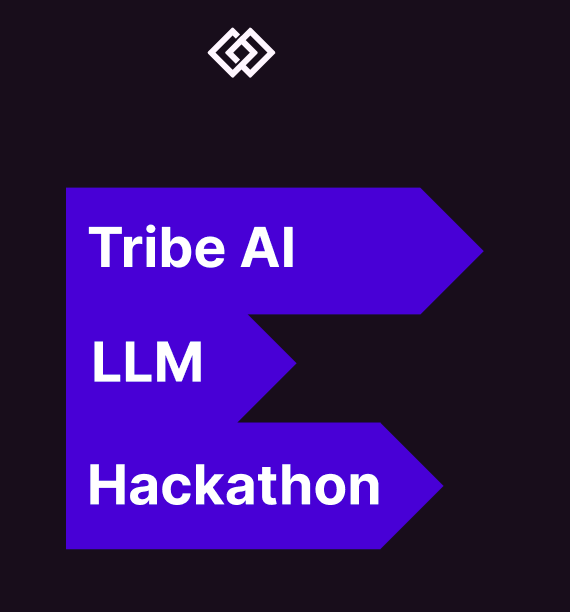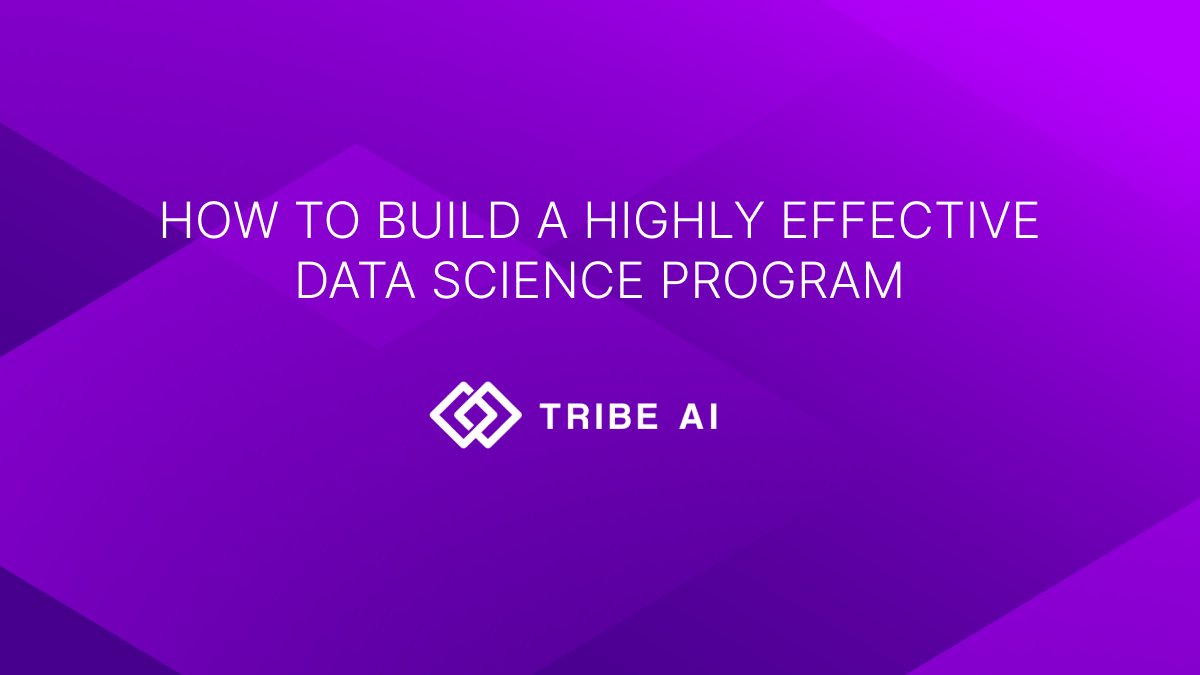Tribe AI co-founder Jaclyn Rice Nelson was recently invited to the U.S. Department of State as part of a series of conversations with experts outside the government on how applied AI can drive impact for inner workings, public policy, and diplomacy.
Jackie joined Dilawar Syed, State Department Special Representative for Commercial & Business Affairs, in a panel moderated by Joel Nantais, Chief Data Scientist at the U.S. Department of State. Jackie was an investor in Dilawar's previous company, Freshworks, when she worked at CapitalG, Alphabet’s growth equity firm– so this was a reunion of sorts.
Read on for key takeaways from their conversation around how the US can accelerate AI adoption and drive more impact with data and machine learning (ML).
Don’t look for use cases for AI – look for challenges and opportunities in your organization.
Too many organizations, in an attempt to modernize, approach this backwards. They say “okay, we want to do AI” when they should be identifying a specific business challenge or an opportunity to drive impact. Only then does it make sense to examine if this is a place ML can drive results.
Tribe goes through a framework with customers to identify the need, the solution, and the ROI. The team conducts in-depth interviews with the company and their internal teams, examines what data is available, and then assesses whether a successful proof of concept (PoC) would be worth the ROI. Often identifying the right problem means ending up in a very different place than the customer might have envisioned. In reality, the most exciting opportunities in applied AI are not that exciting. It’s work that drives operational efficiencies, reduces manual tasks, and leverages underutilized data.
AI isn’t a magic wand – it’s a sustained, long-term investment that requires a solid foundation.
The truth is that most organizations can’t do AI right now without a serious investment in technical infrastructure and data integrity. For example, Tribe worked with a large food distributor that wanted to use ML to better price their bids and eventually automate the bid process. But when the Tribe team dug into the problem what they found was huge teams of people working across multiple spreadsheets and systems. So before the company could get to the next layer of solutions – like automation – they had to invest in laying a strong foundation of high quality, accessible data. Leadership needs to understand that investing in that stage is critical.
Access to top talent is the biggest challenge facing the US when it comes to AI.
Anyone who’s worked in the startup world has experienced some version of this story: you hire a talented data scientist, train her, and then she leaves for Google or Amazon at 3x compensation. You can’t build companies or innovate without access to world class talent, but as a country the US has been behind in investing in STEM, so this is going to be a generational challenge. We have two choices here: invest in education and wait for new talent to mature or find a way to better utilize the talent currently on the market.
Democratizing access to talent is how we accelerate AI adoption beyond the walls of big tech.
In order to accelerate AI adoption in the United States, we need people with the right technical capabilities to be pointed at the right problems. But the truth is that most companies can’t figure out whom to hire, forget how to train and retain top technical talent. This doesn’t just apply to traditional industries. Even companies that have every technical advantage – Silicon Valley based, huge engineering teams, with top investors – still struggle to hire ML talent.
This is why we need organizations that can bridge this gap – both by providing access to talent and a framework to help organizations drive value with ML. This is the reason Tribe exists. By building a collective of world class technical talent and giving them opportunities to drive impact at companies outside of FAANG, Tribe is working to accelerate AI adoption beyond big tech.
There’s a structural bias towards big companies with lots of data.
You need a lot of high quality data to do machine learning at a level that produces good results, so there’s a natural structural bias towards companies that have access to lots of data – meaning larger tech companies. This trend is self fulfilling: these companies continue to do more machine learning and so continue to be more advanced and able to hire top talent and so on.
One way to solve this is to think about ways we can make data more open and available, so any entrepreneur with a good idea can have a sandbox to experiment in. This isn’t just a business challenge, but a national security challenge. The more roadblocks there are to innovation, the more we fall behind the global community.
AI is most valuable as a tool for augmenting human intelligence, not replacing it.
In fields that are heavily reliant on human decision making, intuition, and relationships – like diplomacy or private investing – one of the most valuable roles of machine learning is to use data to confirm hypotheses.
And it’s not just private data that gives you an edge here. Tribe has done work leveraging public data – census data, electricity data, water records – to confirm or disprove hypotheses around the private investing market and find areas that might be more or less attractive for investment in a given industry. And, when it comes to private data, there’s a wealth of insights to be uncovered just by doing the hard work of stitching together a thousand different spreadsheets to make that data more accessible. This kind of work frees people to do the work that matters instead of sifting through volumes of content.
Building diverse teams is critical to mitigating bias in the field of AI.
There are really two dimensions to mitigating bias in AI: the data and the people who work on building the models. On the data side, the answer is simpler: we need broader and more diverse data sets. When it comes to talent, the only fix is building more diverse teams. We’ve talked about how hard it is to hire and then, on top of that, trying to build a diverse team in a field that’s predominantly white and male can feel like a nearly impossible task.
At Tribe, the composition of the network looks really different from most companies. Diversity is part of Tribe’s DNA, not just because it’s the right thing to do, but because diverse perspectives and skillsets lead to better outcomes. Tribe has set out to build the world’s best network of ML talent, which means a wide variety of experts not just across technical areas, but also backgrounds, solving both the talent and diversity gaps for companies in the process. The truth is this is a problem that’s too great for most companies to solve on their own.












.png)


.png)

.png)




.png)



.png)
.png)


.png)



